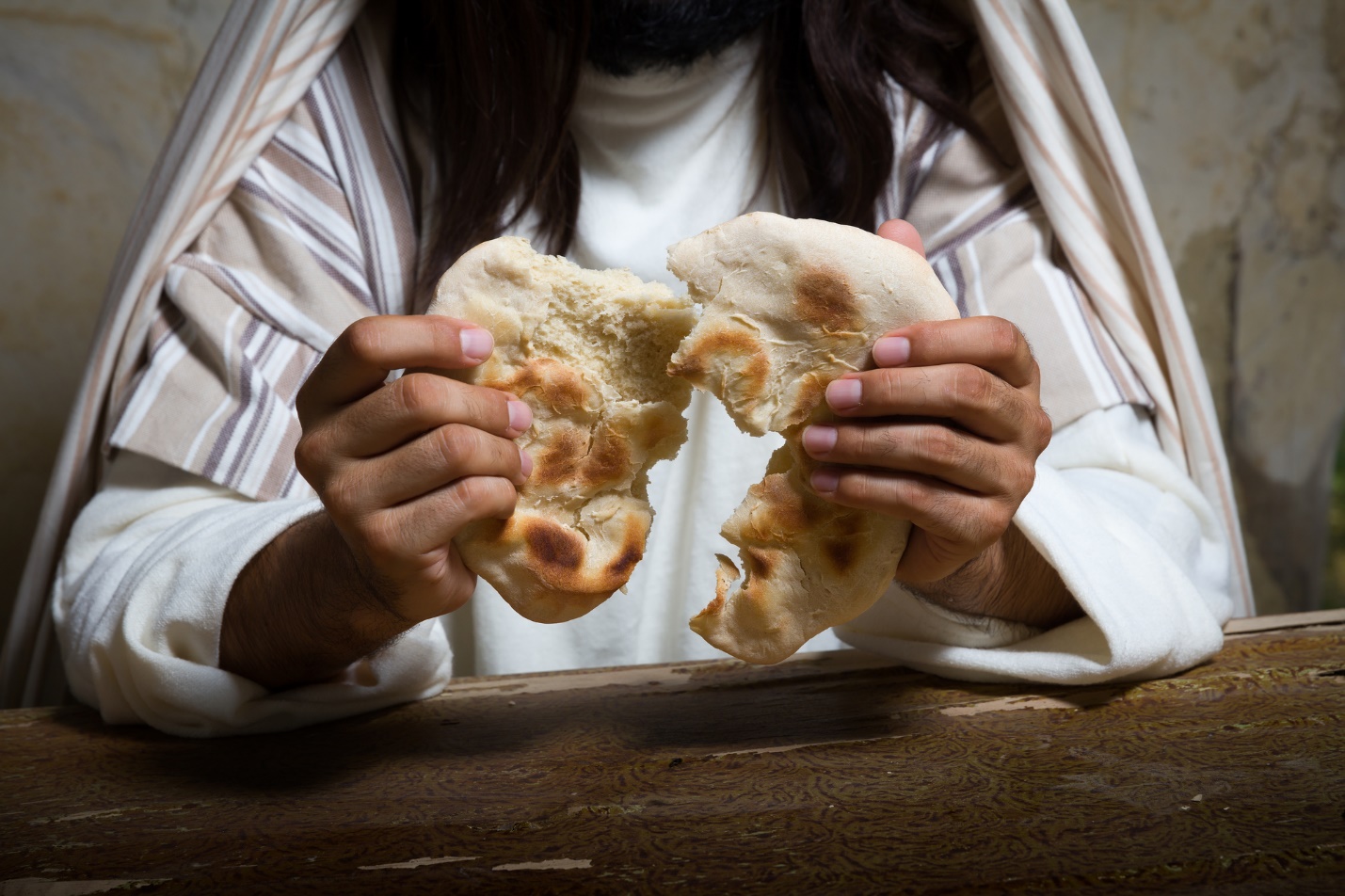BP76

DTFL has addressed anxiety in several different posts. Today, I would like to continue the discussion of anxiety. We are certainly familiar with anxiety around things like public speaking, finances, teenagers, ‘prodigal’ children, COVID and/or the vaccine, politics, flying, dying, health issues, the stress of being married and the stress of not being married, and so on. There are lots of things to be anxious about in this world.
DTFL recognizes the importance of considering these critical everyday anxieties and doing everything we can as psychologists to mitigate their negative impact. However, Designer Therapy for Life also desires to look at the roots of anxiety that run deeper than the anxiety issues alluded to above. What is the tap root of anxiety anyway, one might ask? Several have been discussed in other posts such as the primary influence of aloneness as well as the power of suppressed emotions.
First of all, then, we were created to be with God and others. Here we see the essential role of Presence in the life of every human. When we retreat and hide and through fear and bitterness divorce from others, we are left alone in our souls. Anxiety comes when we, who were designed to be with others, find ourselves coping in a manner that leaves us alone in the universe.
Secondly, when men and women suppress their emotions for different reasons (there are many), the Well of transparency is effectively closed. Consequently, the only options remaining for the expression of emotions and needs are through Leakage and the Volcano. Anxiety, as has been mentioned before, is an example of Leakage. Anxiety shows up on the landscape of the human heart when emotions are tamped down, needs are ignored, and also when the true self is hidden. All those things will seek to emerge in alternative, unhealthy ways. Anxiety is a primary expression.
In today’s blog, we are going to consider a third cause of deeper anxiety in addition to suppressed true selves and aloneness. This third source of anxiety is a bit complex and is decidedly spiritual in nature. It involves the identity of God and the truth of his word, two issues that are inextricably intertwined, I believe.
Let me get right to the point. If our view of God’s identity is skewed, anxiety will follow. Anxiety is directly impacted by having a distorted view of who God is in his character and size.
I do not want to go into too much depth here, but I do think it is important to consider both the sovereign otherness of God and also his intimate closeness and approachability. Many people would say that the Old Testament portrayal of God highlights his transcendence, namely, his total superiority compared to humanity: his unapproachable holiness, his divine power that sends world-wide floods and divides the sea and destroys the enemies of his people, his incomprehensible eternal existence, his inimitable ability to create everything, and the fact that he is the great I AM—there is no other like him (Deuteronomy 4:35, 39).

The same people might say that the appearance of Jesus on the pages of the New Testament made the Old Testament transcendent God approachable. Jesus comes as God in the flesh. He is someone who can be seen and touched (if you lived in first century A.D. Israel). He performed amazing miracles (reminiscent of the ones we encounter in the Old Testament) like calming the sea, healing the sick, and raising the dead. He clearly is the transcendent God who is other than us. But he also touched people, looked into their eyes, ate meals with them, wept with them, and called his disciples “brothers” and “friends”!
In summary, to have an accurate view of God we must remember that he is both the sovereign, eternal Deity whose Presence we cannot enter but that he is also the approachable savior who came wearing our skin to save us and reconcile us to the father. The Being who is so high and lofty that we maybe know .0000001% of him (most likely less than that) came to be our friend.
Unbelievable. Unimaginable. What great comfort and what amazing relief for our anxiety to know the immensity of God but also his approachability and friendship with those who call to him.
What could ever undermine the peace, joy, and hope that the mingling of the transcendence and the intimate Presence of God brings to his creatures?
Sadly, many things. Today, I want to focus on one of those things, namely, the truth that all of us humans (otherwise known as walking dust) do not see the eternal God for who he is. This minimization of God is certainly understandable when our human brains and souls can only experience .0000001% of who he is. But beyond our limitations, humans have a bad habit of making God a lot smaller than he is. We bring him down to our level instead of striving to see him increasingly for who he is.
I empathize with the habit of trying to bring God down to my level so he and he and I can see eye to eye, so I can comprehend him. I do it subconsciously and probably even consciously every day. The problem is that we try to embrace God with our limited brain. (Sin also veils our accurate view of God’s majesty and glory.) We want to capture him and reduce him to someone we can understand. But that is like trying to view a baseball game through a pinhole in the fence (not something as big as a knothole) and then claiming that you can accurately describe what is going on in the ballpark.
Yes, we as humans see God through a pinhole. We are that limited. I do not think we usually contemplate the truth, but God is unfathomable and our ability to see (know) him is infinitesimal. Maybe the worst of it, however, is that we think we see him for who he is. He is subject to our powers of observation instead of us being subject to his powers of observation.
What analogies can we employ here as we compare limited humans to the limitless God? A newborn baby teaching a track star how to run? A toddler instructing a PhD mathematics professor how to approach quantum physics? A starfish demonstrating how to paint a landscape to a world-famous artist?
Analogies might help to demonstrate the immeasurable otherness of God compared to us, but even the best of analogies would do little to capture the distinctiveness of a holy, transcendent God as opposed to a puny human.
Just remember that God has the power to speak things into being. Can a human do that? Can we utter the words, UY Scuti, I order you to exist?
The next question to be asked is if it even matters for human anxiety that we see the size/character of God accurately. What if some humans do see God as small, limited in knowledge, as more of a co-partner than a being largely beyond their comprehension? Will it impact humans and their experience of anxiety if they reduce God to a level where they can more fully understand him; where they can stand toe to toe with him and plan the future together; where they can even stand above God and ask him why he did what he did to the Canaanites or to the people living in the days of Noah?
I don’t now about you, but I believe we are standing on fragile ground when we hold God accountable for what he did instead of humbly asking him to reveal to us the limitations of our knowledge.

So, what is the point I am getting at here? If we make God smaller, easier to understand, even accountable to our amoeba minds, we will have more anxiety. Why is that?
Humanly speaking, every child desperately needs parents who are big and strong and idealizable and present and reliable—safe giants. I have counseled many people who came into adulthood with high levels of anxiety (and usually anger) because they perceived their parents as weak, unreliable, and even people who needed to be taken care of instead of taking care of them.
These clients did not have safe giants when they were young who they could trust implicitly even when the parent inflicted the pain of discipline or were accomplices in the suffering of surgeries or other medical procedures such as inoculations, stitches, or blood draws.
The size (strength) of the parent is critical for a child when it comes to the experience of anxiety as opposed to comfort. So also, the size of God is critical to the child of God. If your view of God is limited by your unbelief or skepticism or distrust or pride, you will have a God who is quite small. The smaller the God you entertain in your mind, the larger will be your anxiety because your God is not big enough to comfort you in this fallen world. The larger your view of God as omnipotent, kind, holy, loving, and sovereign, the lower will be your anxiety because your God is both good and he is strong.
Psalm 62:11, 12 says, Once God has spoken; twice have I heard this: that power belongs to God, and that to you, O Lord, belongs steadfast love. How reassuring it is to know a God who is both powerful and loving.
Viewing your God as incomprehensibly big and loving is the key to anxiety in this fallen world. If he is loving but not big, then you have a God with nice intentions but who is not strong enough to follow through. If you have a big God who is not loving, then you have a Deity who can do whatever he pleases but you cannot trust that he sees you or wants the best for you.
The first point here about God and anxiety is to make sure you check the identity (size and character) of the God you serve. Your view of his identity will impact how you see yourself and the world around you. Your view of him will lead you down the path of mushrooming anxiety or growing peace and trust that is unshakable in this dark world.
So, where do we acquire our view of God’s identity and our subsequent experience of anxiety? Christians will say that we get our view of God from the Bible. Christians are people of the Book. We do not base our view of God or reality on our opinions, subjective guessing, emotional sentiment, or individually crafted guidelines.
Or do we? Everyone needs to consider the answer to that question for themselves because often our view of God is more culturally influenced than scripture driven.

The Word of God tells us who God is. We know him from the written word. The Bible describes God and his character throughout the Old Testament and the New Testament. Repeatedly, he is identified as loving, true, just, righteous, holy, all-knowing, all-powerful, eternal, Creating, sovereign, faithful, pursuing, disciplining, possessing emotions, covenantal, and keeping his promises.
In other words, the God of the Bible is good, and he is strong. He is good in the sense of being perfect and he is strong in the sense that he can do whatever he pleases. What great news for us children of God who need to know that our parent is going to take care of us in his power and that he will be with us in his great love.
In short, the Bible is a great source of comfort and a balm against anxiety because it tells us who our God is, describing his beautiful character to us. He is transcendent (omnipotent—all powerful) and he is lovingly present and approachable.
The problem here is that some people do not believe God’s word (usually the same people who see God as small and subject to human cross examination). Oh, they might believe some of it. Other parts, however, that do not fit their subjective view of what is true and loving, they will challenge. They will find a way to edit portions of the Bible, redefine it, engage in eisegeis instead of exegesis, redact it, or possibly even question if scripture is merely the words of humans instead of God.
My only question here is, what comes first? Do people arrive at a smaller view of God and then alter Scripture to fit their personal theology, or do they begin with a lower view of God’s word and then (not surprisingly) arrive at a lower view of God’s identity?
The second main point, then, is that a lower view of God’s word as subject to human challenges or to being rewritten to fit the cultural climate of the postmodern world (or whatever we call it now) is a dangerous place to arrive at—very dangerous.
Once again, Christians are people of the book who believe in absolute truth. They trust that God’s word is a reliable measuring stick for behaviors and beliefs in this relativistic world. If we begin to dismantle the Word of God because we believe our human intellect is superior, we begin sliding down a very slippery slope. This slope is the same one that individuals and institutions have slid down over the last two millennia when they began to doubt God’s absolute authority and instead believed their own human discernment and sentiments.
Whole universities and churches lie broken at the bottom of that slippery slope.
If we do not believe God’s word, where then is our source of truth? Where is our accurate view of who God is in all his power and love and holiness? How can we believe that God is big enough to protect us and close enough to comfort us? How can we put trust in any part of scripture if we doubt part of it? Who is to say what part of the Bible is true or what part needs to be cut out because it seems too harsh or hurtful or unloving?

Rudolph Bultmann was a German theologian in the earlier half of the 20th century who set out to make the Bible palatable to the modern mind that believed in a closed space-time continuum—in other words, that there is no supernatural. He engaged in what he called a demythologizing of the Bible—removing all miracles and any content that would be offensive to the intellectual mind of the ever-developing human.
Bultmann ended up gutting the word of God to please unbelieving humans–the minds of agnostics and the atheists. How often do we do that with the word of God today? We gut it so it sits well with our limited view of the world that we see through the pinhole of our limited humanity and fallenness. Heaven forbid that we would allow the word of God to create dissonance within us!
So, what is the bottom line here? Everything comes down to our perspective on two things, namely, our view of the size of God and of the accurate authority of Scripture. All anxiety of the deeper variety can be traced back to a low view of God and Scripture. Inexpressible joy and deep peace always flow from a high view of God and his word.
As soon as you see someone challenging the authority of Scripture, plan on their view of God being smaller. As soon as you see someone with a small view of God, assume that they do not respect the authority of God’s word. Anxiety will follow in both of these perspectives because God is not big enough to take care of you, and the word he left to teach and guide you is unreliable and totally open to random editing. How can you have peace and trust under such circumstances?
As a psychologist who believes that our deepest peace comes from a relationship with the Creator of the universe, I simply go back to one question: Is God big enough to deliver his word to us in an accurate fashion and in a form we can trust?
Do you believe that God made the sun, the stars, the mammoth blue whale, the human eye, the deepest trenches of the ocean with all its amazing denizens, the brain, our whole universe? Did Jesus die and miraculously remove our sin from us and did the Father raise him from the dead? Will your dead body also be raised by God one day to live forever with him in a perfect place called heaven?
If you said yes to these questions, I would assume that you believe that God is big. How big? If he is big enough to do all the things mentioned above, do you believe he is big enough to give us his word in a reliable medium known as the Bible? Or do you believe that the awesome Being who created everything left us with an unreliable document that we must redact and question and cut out portions of in order to have an accurate final version (that suits our human sentiments and sensibilities).
Personally, I believe that God is far bigger than the pinhole deity many seem to imagine in their minds and that his word is accurate and reliable for our lives on this planet. As it says in the Old Testament, Every word of God proves true; he is a shield to those who take refuge in him ~ Proverbs 30:5. And as it says in 2 Timothy 3:16, All Scripture is breathed out by God and profitable for teaching, for reproof, for correction, and for training in righteousness.

If God is far bigger than me and his word is the ultimate authority, I will submit to him instead of assuming that I know better than him. Once we begin thinking that we know better than God and that his word is subject to human authority, we are left with only a small God made in our image to comfort us. God is reduced to a co-partner in our struggles. Between the two of us—God and us—we will do our best to figure out how to do life without absolute truth in a dualistic universe.
Only a stone’s throw away from making God small and doubting the accuracy of his word is the question that raises its head next: Who created God?
In summary, whose view of God do you trust, your view or God’s? Do you trust the authority of God’s word, or do you trust your subjective feelings about what must be right, fair, true, loving, and just? Everything depends on how you answer these questions: God’s identity, your identity, your source of truth, even your belief in an authority above and beyond you.
Be very careful because relativism is all over a low view of God and his word. It already has made hazy the minds of many believers who drank the Kool-Aide of this world. And remember, a low view of God and the Bible is nothing new. It is, in fact, the more natural position of fallen humanity. A high view of God and Scripture only comes to those who daily rise above the gravity of this fallen world by trustingly submitting to God’s loving authority.
Everyone is free to choose how they wish to see God and his word. Just know that your view of both will ultimately impact your mental health. A correct view of God as unfathomable in power and holiness and knowledge and love and truth will, over years of practicing his Presence, create a growing peace in you until not even evil, suffering, dying, and death will cause you anxiety. You will know a peace that passes understanding and that obliterated anxiety.
Yes, you will groan at times (but you know that all things will be made right one day); you will grieve (but not like those who have no hope); and you may even question God (but you know deep inside that he will never forsake those who seek him). Ultimately, you will find peace and comfort and hope in the protective harbor of God’s character as a sovereign and loving personality whose written word is the path to life.
Get God and Scripture right. Trust that God is transcendent and therefore big enough to deliver his Scripture to you in an accurate and trustworthy form. Many will oppose God and his truth and say that they represent him. Be careful who you trust. Study his word and find out what is true instead of what some want to be true.

As a nut in the universe (ha), be screwed onto the divine bolt of truth and love, to God himself. Otherwise, your life will be built on your own pinhole wisdom instead of God’s eternal and infinite wisdom. If you ever doubt God and his truth, I exhort you to submit to God’s authority instead of your own. Trust his word instead of the word of men and women who must alter scripture to make it say what they wish.
For the time is coming when people will not endure sound teaching, but having itching ears they will accumulate for themselves teachers to suit their own passions, and will turn away from listening to the truth and wander off into myths ~ 2 Timothy 4:3-4.
Know who God is and you will then believe what he says. Believe what he says, and you will then know who he is. Your peace in this universe depends on it.
What you believe about God and his word makes all the difference in the world, not just intellectually and theologically, but psychologically and emotionally as well.
Don’t go to the movie entitled, Honey, I shrunk God and the Bible. Instead, go to the movie, No Time to Die from Anxiety (because I serve a sovereign God whose absolutely true word guides my steps every minute of every day).
A small God created in your image will leave you vulnerable to the shifting winds of the universe and will cultivate a deep tap root of anxiety in your soul. If you practice the Presence of the unfathomably huge God of the Bible, you will experience a comforting peace that will embrace you in the scariest of times.
Why settle for less when so much is at stake?
For my thoughts are not your thoughts, neither are your ways my ways, declares the LORD. For as the heavens are higher than the earth, so are my ways higher than your ways and my thoughts than your thoughts ~ Isaiah 55:8-9
Behold, these are but the outskirts of his ways, and how small a whisper do we hear of him! But the thunder of his power who can understand? ~ Job 26:14

